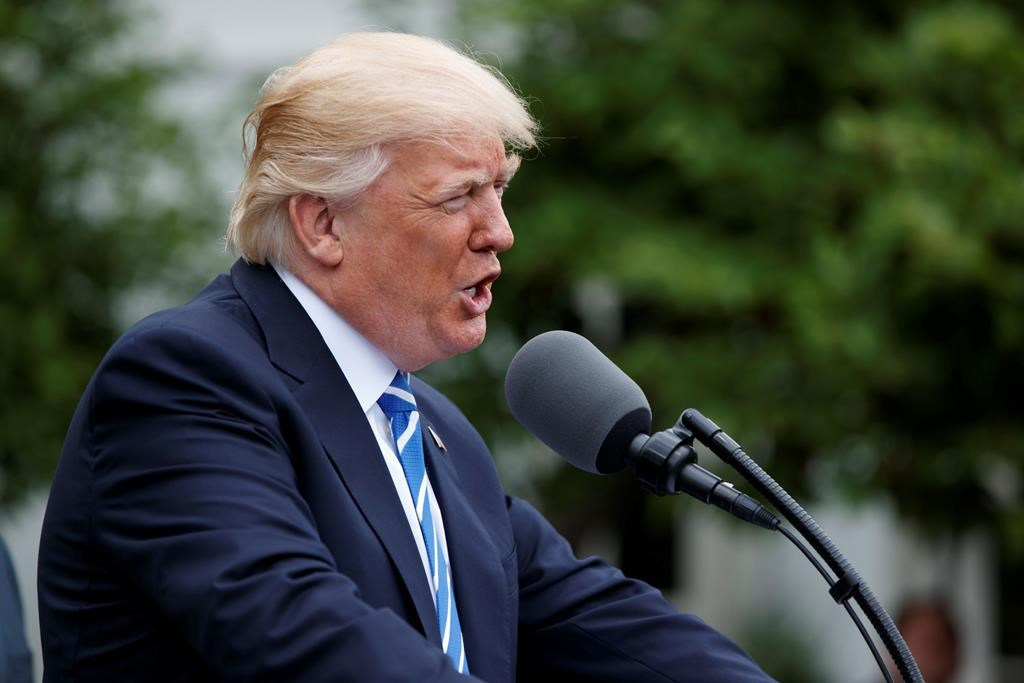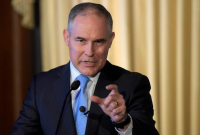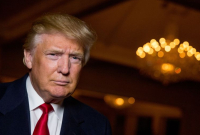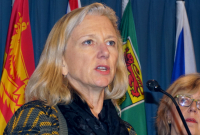Support strong Canadian climate journalism for 2025
U.N. Secretary-General Antonio Guterres made an impassioned appeal Tuesday for the world to intensify action to combat climate change and implement the Paris Agreement to limit carbon emissions as President Donald Trump debates whether the U.S. will withdraw from the accord.
Gutteres never mentioned the American leader by name in his speech at New York University's Stern School of Business, his first major address on climate change since taking the reins of the United Nations on Jan. 1. But he said in response to a question afterward that the United Nations believes "it would be important for the U.S. not to leave the Paris agreement."
Even if Trump withdraws, Guterres said, "it's very important for U.S. society as a whole — the cities, the states, the companies, the businesses — to remain engaged."
Trump, who was critical of the deal during his campaign for the presidency, is expected to make an announcement this week on whether the United States will remain a party to the climate accord that his predecessor, Barack Obama, strongly supported and signed.
Nearly 200 nations agreed in 2015 to voluntarily reduce greenhouse gas emissions. As of Tuesday, 147 nations had ratified the Paris Agreement, representing more than 82 per cent of global emissions, the U.N. chief said.
Guterres said their pledges to limit the global temperature rise to below 2 degrees Celsius and as close as possible to 1.5 degrees Celsius "are historic — but still do not go nearly far enough to limit temperature rise."
"Commitments so far could still see temperatures rise by 3 degrees or more," he warned. "So we must do our utmost to increase ambition and action until we can bend the emissions curve and slow down global warming."
First, Guterres said he will immediately press for ratification of the Kigali Amendment agreed to in October by nearly 200 nations on limiting the use of hydrofluorocarbons (HFCs) — greenhouse gases far more powerful than carbon dioxide that are depleting the ozone layer.
Unlike the Paris Agreement, the Kigali Amendment to the Montreal Protocol on Substances that Deplete the Ozone Layer is legally binding.
It caps and reduces the use of HFCs in a gradual process starting with action by developed countries in 2019, including the United States, the world's second-worst polluter, and then by over 100 developing countries starting in 2024, including China, the world's top carbon emitter.
Guterres said he will also rally countries to raise the bar on efforts to limit temperature rise and the United Nations system to promote climate action.
"Eighty per cent of the world's energy still comes from fossil fuels — oil, gas and coal," Guterres said. "We cannot phase out fossil fuels overnight. We have to engage the energy industry and governments to use fossil fuels as cleanly, sparingly and responsibly as possible, while transforming our energy systems."
He said solar power grew 50 per cent last year, with China and the United States in the lead, and in both those countries "new renewable energy jobs now outstrip those created in the oil and gas industries." Major oil producers are also looking to the future and diversifying their economies and even Saudi Arabia has announced plans to install 700 megawatts of solar and wind power, he said.
Guterres also pledged to work with developing countries to mobilize resources to tackle the impact of climate change and strengthen efforts by small island states against "the existential threat" that global warming poses.
He said he will strengthen North-South, South-South and other partnerships to implement the Paris Agreement.
"The climate conversation should cease to be a shouting match," Guterres said. "My door is open to all who wish to discuss the way forward, even those who might hold divergent perspectives."
The secretary-general announced that he intends to hold a climate summit in 2019 to review implementation of the Paris Agreement.
"The journey from Paris is well underway," Guterres said. "The support across all sectors of society is profound. The transition in the real economy is a fact. There will be bumps along the path ... but with everyone's participation, the world can bring the Paris Agreement fully to life."





Comments